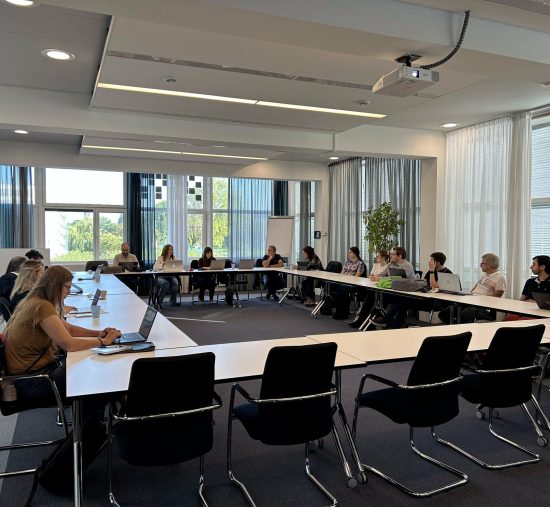
In the charming city of Delft, Delft University of Technology recently played host to a significant event poised to shape the future of e-learning. The eDiploma Project, an ambitious initiative seeking to innovate education through emerging technologies, organized a transnational meeting. This gathering brought together a diverse group of professionals, including researchers, educators, and experts in virtual reality (VR), augmented reality (AR), and e-learning. In this blog post, we delve into the key takeaways from this collaborative experience.
One of the central focuses of the meeting was an in-depth review of the progress and milestones achieved during the project’s inaugural year. The project coordinator, Inmaculada Remolar, delivered a comprehensive report outlining the actions taken in this initial phase. This transparent assessment laid the groundwork for future project activities.
Recognizing the ethical complexities associated with innovative technologies, particularly concerning personal data, the eDiploma Project placed a strong emphasis on ethics. This commitment to ethical practices underscores the project’s dedication to responsible innovation.
Effective communication and dissemination strategies are essential for the success of any project. During the transnational meeting, experts from Brainstorm, FUE UJI and others discussed the implementation of a robust strategy to ensure the project’s findings reach a broad audience. This emphasis on communication reinforces the project’s goal of making a meaningful impact in the field of e-learning.
The technical team, led by experts such as Elmar Eisemann , played a pivotal role in addressing these challenges head-on. Their efforts were instrumental in overcoming technical hurdles related to virtual reality (VR) and augmented reality (AR), bringing the project one step closer to fruition.
Additionally, during the meeting, Laszlo Szecsi provided a firsthand look at the project’s progress by showcasing the Moodle platform. This demonstration offered valuable insights into the project’s user interface and functionality, shedding light on the tangible results of their collaborative efforts. Such presentations further underscored the project’s commitment to transparency and continuous improvement in the ever-evolving field of e-learning.
But the eDiploma Project’s transnational meeting in Delft was not just a gathering; it served as a platform for envisioning the future of e-learning. The diverse, cross-functional partnership demonstrated that the future of e-learning is indeed on the horizon. With the project entering its second stage, there is genuine excitement about what lies ahead, the event brought together professionals passionate about e-learning and emerging technologies. Emphasizing collaboration, ethical considerations, and effective communication, this project is poised to have a lasting impact on education. As the project advances into its second year, the world eagerly anticipates the innovative solutions that will emerge from this consortium. The future of e-learning is becoming increasingly attainable, thanks to the dedication and expertise of the eDiploma Project team.
© 2022 e-DIPLOMA. All rights reserved. Funded by the European Union. Views and opinions expressed are however those of the author(s) only and do not necessarily reflect those of the European Union or European Research Executive Agency (REA). Neither the European Union nor the European Research Executive Agency (REA) can be held responsible for them.
